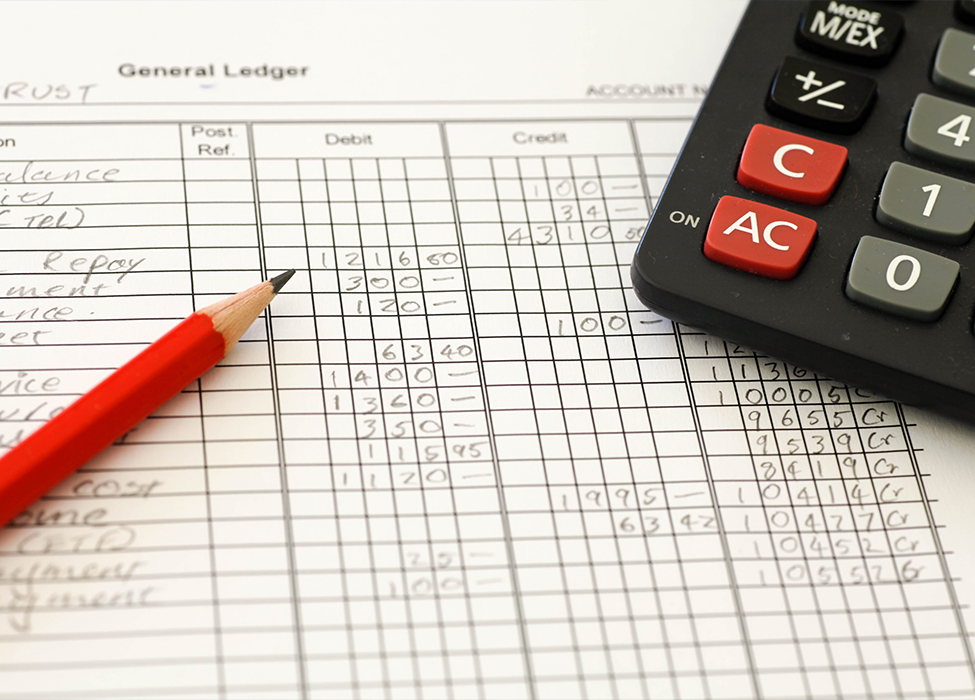Efficient and strategic financial management is crucial for the growth of any organization. One of the key components of financial management is maintaining an accurate and up-to-date general ledger.
Traditionally, general ledger accounting involved manual entry, extensive paperwork, and the risk of human error. However, with the advent of modern technology, financial management software has revolutionized how businesses handle their general ledger accounting. Let's explore how financial management software can streamline and enhance your general ledger accounting processes.
Understanding General Ledger Accounting
General ledger accounting is a fundamental component of a company's overall accounting system. It is the central repository for recording and organizing financial transactions and maintaining the company's financial records. It offers a comprehensive and systematic overview of an organization's financial activities, enabling accurate and reliable financial reporting.
At its core, the general ledger is a master record that contains all the individual accounts used to classify and summarize financial transactions. These accounts include assets, liabilities, equity, revenue, and expenses – with so much information to process, something can easily go wrong if maintained manually!

Still Using Traditional Manual Accounting Processes?
Manual general ledger accounting poses risks related to human error, time inefficiency, data accuracy, auditability, scalability, and compliance. Adopting financial management software and smart solutions can mitigate these risks, improve accuracy, streamline processes, and enhance overall financial management capabilities. Here are some of the pitfalls of manual general ledger accounting:
Difficulty in Tracking and Retrieving Information: Without automated systems, retrieving specific transaction details or generating reports may become time-consuming and challenging. Locating and verifying information within extensive manual records can be cumbersome and prone to errors.
Lack of Audit Trail: Manual general ledger accounting may lack a reliable audit trail, making it difficult to trace and verify the accuracy of transactions and adjustments. An audit trail is crucial for internal control, compliance, and identifying potential fraud or errors.
Inefficient Reconciliation: Reconciling accounts manually can be a complex and time-consuming process. It involves comparing multiple documents and ensuring that all transactions are accurately reflected in the general ledger. Manual reconciliation increases the risk of overlooking discrepancies or making mistakes during the process.
Limited Scalability: As the volume of transactions and the complexity of the business grow, manual general ledger accounting becomes increasingly challenging to manage effectively. It may lead to inefficiencies, errors, and difficulties in handling the increased workload.
Security Risks: Manual records are susceptible to physical damage, loss, or unauthorized access. Protecting sensitive financial information and maintaining data confidentiality becomes more challenging without the security measures provided by financial management software.

Smart Financial Management Software Improves Accuracy, Efficiency and Security
Introducing smart financial management software can greatly benefit your general ledger account, here’s how:
Automating Data Entry:
Financial management software eliminates the need for manual data entry, reducing the likelihood of errors and saving valuable time. It can directly integrate with various systems and capture financial data automatically, such as transactions from sales, purchases, payroll, and bank accounts. By automating data entry, the software ensures accuracy and allows your accounting team to focus on more strategic tasks.
Real-Time Updates and Accuracy:
With financial management software, your general ledger is always up-to-date. As transactions occur, the software records them in real time, eliminating the need for manual journal entries and reducing the risk of overlooking or duplicating entries. This real-time updating ensures accurate financial reporting and provides management with timely insights into the company's financial health.
Streamlined Reconciliation:
Reconciling accounts can be a time-consuming and error-prone process. However, financial management software simplifies this task by automating the reconciliation process. The software can match transactions, identify discrepancies, and provide alerts for any inconsistencies, ensuring that your general ledger remains accurate and balanced.
Improved Financial Reporting:
Financial management software offers robust reporting capabilities, allowing you to generate customized financial reports effortlessly. These reports provide valuable insights into your organization's financial performance, including profit and loss statements, balance sheets, and cash flow statements. The software's reporting features enable you to analyze data, identify trends, and make informed decisions based on accurate and up-to-date financial information.
Enhanced Security and Compliance:
Financial management software maintains security and protects your sensitive information from unauthorized access. Additionally, the software often incorporates compliance features that help ensure adherence to regulatory requirements and accounting standards, reducing the risk of non-compliance penalties.
Scalability and Integration:
As your business grows, so does the complexity of your general ledger accounting. Financial management software provides scalability to accommodate your expanding needs. Whether you have a small startup or a large corporation, the software can handle the increasing volume of transactions and adapt to your changing requirements.

Furthermore, many financial management software solutions integrate with other business systems such as customer relationship management (CRM) software and enterprise resource planning (ERP) systems, enabling seamless data flow and enhanced efficiency across departments.
Financial management software has become a game-changer for general ledger accounting. By automating data entry, ensuring real-time updates, streamlining reconciliation, improving financial reporting, and enhancing security and compliance, this software empowers businesses to optimize their financial management processes.
Want to learn more? View our robust FAO services or get in touch with us and our team can answer your questions and guide you with the right solutions.


